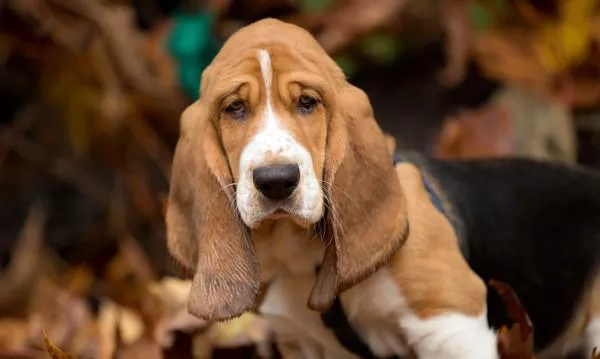Potty training is an essential part of raising a Basset Hound puppy. Known for their intelligence and strong sense of smell, Basset Hounds can be successfully potty trained with patience, consistency, and positive reinforcement. This article will guide you through the steps of potty training your Basset Hound puppy, offering practical tips and addressing common challenges.
Understanding Your Basset Hound Puppy
Characteristics of Basset Hounds
Basset Hounds are friendly, loyal, and affectionate dogs. They have a strong sense of smell and a somewhat independent nature. Their physical characteristics, such as short legs and a long body, make them unique. Understanding these traits will help you tailor your potty training approach.
Importance of Early Training
Starting potty training early is crucial. Puppies have small bladders and need frequent opportunities to relieve themselves. Early training helps establish good habits and prevents accidents in the house.
Preparing for Potty Training
Setting Up a Designated Potty Area
Choose a specific spot in your yard for your puppy to use as their potty area. This helps them associate a particular location with relieving themselves. The area should be easily accessible and relatively quiet.
Gathering Supplies
Leash and collar: For guiding your puppy to the potty area.
Crate: Useful for crate training and providing a safe space.
Puppy pads: For indoor use during the initial stages of training.
Cleaning supplies: For accidents that occur indoors.
Establishing a Routine
Puppies thrive on routine. Consistent feeding, play, and potty times help them understand what to expect and when. A structured schedule reduces confusion and speeds up the potty training process.
Step-by-Step Potty Training Process
1. Crate Training
Benefits of Crate Training
Crate training is an effective way to manage your puppy’s potty habits. It leverages a dog’s natural instinct to keep their sleeping area clean. A properly sized crate provides a secure environment and helps prevent accidents.
How to Crate Train
Introduce the crate: Make the crate inviting with a soft bed and some toys. Encourage your puppy to enter the crate by using treats and positive reinforcement.
Short sessions: Start with short periods in the crate and gradually increase the duration. Never use the crate as a form of punishment.
Regular breaks: Take your puppy to the potty area immediately after they exit the crate.
2. Establishing a Potty Schedule
Frequency of Potty Breaks
Young puppies need to relieve themselves frequently. Take your puppy to the potty area:
- First thing in the morning.
- After meals.
- After playtime.
- Before bedtime.
- Every 1-2 hours during the day.
Recognizing Potty Signals
Watch for signs that your puppy needs to go:
- Sniffing the ground.
- Circling or restlessness.
- Whining or barking.
- Heading towards the door.
3. Positive Reinforcement
Rewarding Good Behavior
When your puppy successfully goes potty in the designated area, immediately praise them and give a treat. Positive reinforcement encourages them to repeat the behavior.
Avoiding Punishment
Never punish your puppy for accidents. This can create fear and confusion. Instead, calmly clean up the mess and continue reinforcing good behavior.
4. Dealing with Accidents
Cleaning Up Properly
Use enzymatic cleaners to remove all traces of urine or feces from accident spots. This prevents your puppy from being attracted to the same spot again.
Analyzing the Cause
If accidents persist, evaluate potential causes:
- Irregular feeding schedule.
- Inconsistent potty breaks.
- Health issues (consult your veterinarian if concerned).
5. Gradual Freedom
Increasing Independence
As your puppy becomes more reliable, gradually increase their freedom in the house. Start with one room at a time, ensuring they have recently gone potty before allowing access.
Supervision and Management
Continue to supervise your puppy closely. If they start to exhibit potty signals, guide them to the designated area immediately.
Common Challenges and Solutions
Stubbornness
Basset Hounds can be stubborn at times. Patience and consistency are key. Maintain a positive attitude and avoid getting frustrated.
Nighttime Potty Breaks
Young puppies may need to go potty during the night. Set an alarm to take them out once or twice until they can hold it through the night.
Marking Behavior
Male Basset Hounds may start marking territory. Neutering can help reduce this behavior. Reinforce potty training consistently to address marking indoors.
Advanced Training Tips
Bell Training
Attach a bell to the door and teach your puppy to ring it when they need to go out. This can be done by ringing the bell yourself before each potty break and gradually encouraging your puppy to do it.
Using Commands
Incorporate a potty command like “go potty” or “do your business.” Say the command as your puppy starts to relieve themselves. Over time, they will associate the command with the action.
Socialization and Distractions
Gradually introduce your puppy to different environments and distractions. This helps them learn to go potty in various settings and not just at home.
See also: Are Bichon Frise Difficult to House Train?
Conclusion
Potty training a Basset Hound puppy requires patience, consistency, and positive reinforcement. By understanding their unique characteristics and following a structured training plan, you can successfully potty train your puppy. Remember to establish a routine, use positive reinforcement, and deal with accidents calmly. With time and dedication, your Basset Hound will learn to reliably go potty in the designated area, leading to a cleaner and happier home for both you and your puppy.
Always consult your veterinarian if you encounter persistent issues or have concerns about your puppy’s health during the potty training process.


